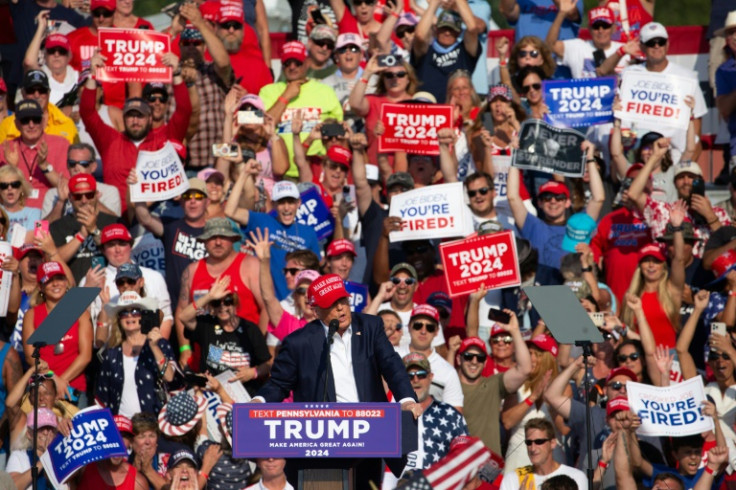Security In Question In Trump Attack Aftermath

Questions swirled on Sunday over how one of the most protected political figures on earth, guarded by a state-of-the-art security detail, could have found himself just dozens of yards from an attacker carefully aiming a rifle at his head.
Interrogations centered on the extent of the perimeter established by the security services, in particular the US Secret Service, which is responsible for protecting America's top political figures.
As the world pores over the second-by-second details of the events of Saturday, it has been established that the gunman was on the roof of a nearby building, around 500 feet (150 meters) from former president Donald Trump.
"That's the most surprising thing to me, when we have a former president here, that a guy was...able to get up on a roof and take a shot," said Richard Goldinger, the district attorney for Butler County, Pennsylvania, where the political rally took place.
"We had some law enforcement in that building, (making it) even more surprising that he was able to get up there," he told MSNBC.
Richard Painter, a White House official under George W. Bush and now a law professor at the University of Minnesota, called for "a detailed investigation into this egregious security failure."
"If there is a rooftop within rifle range of a president or a presidential candidate, it's the Secret Service that should be on that rooftop.
"Have they ever heard of the Texas Book Depository?" he said, referring to the building from where Lee Harvey Oswald murdered President John F. Kennedy using a long-range rifle in 1963.
"The shooter was outside the Secret Service perimeter. What kind of a perimeter is that? We know that any crackpot can all too easily buy a high-powered rifle in the United States. The perimeter needs to be as far as the eye can see," he added.
Republican House Speaker Mike Johnson said Sunday that he had called Homeland Security Secretary Alejandro Mayorkas to "ask him some pointed questions" about the assassination attempt.
"My first question is, were drones being used in the vicinity? I mean, that would be obvious. You would be able to spot someone on a roof," he told NBC News.
Originally part of the Treasury Department, the Secret Service was transferred to the Department of Homeland Security in 2003.
Its agents, known the world over for their dark glasses, earpieces and black suits, are responsible for the security of present and former presidents and vice presidents, their wives and children up to age 10, and presidential candidates.
They also provide protection for foreign heads of state and government on official visits and for major national and international events, such as the NATO summit that ended Thursday in Washington.
In a video released on Friday, the Secret Service boasted of its technological capabilities, underlining that at the recent summit it "proudly presented the newest member of its security team, a state-of-the-art robot dog named ASTRO."
Criticism following the rally attack, however, concentrated on potential human failings. Witnesses told the media that they had reported seeing an armed man on the roof to security services, but that they had not reacted.
A former Secret Service agent, Paul Eckloff, defended the security team, insisting on the delicate balance needed between the demands of protecting public figures and allowing a political campaign to take place unimpeded.
"It's important for people to understand when you see that counter-sniper technician take out the threat, that until he identified it as a threat, it was an individual from 200 yards moving on a rooftop," Eckloff told ABC News.
"If he had neutralized... an innocent civilian that just happened to be trying to get a view of former president Trump, we would be having a very different conversation," he added.
© Copyright AFP 2024. All rights reserved.





















